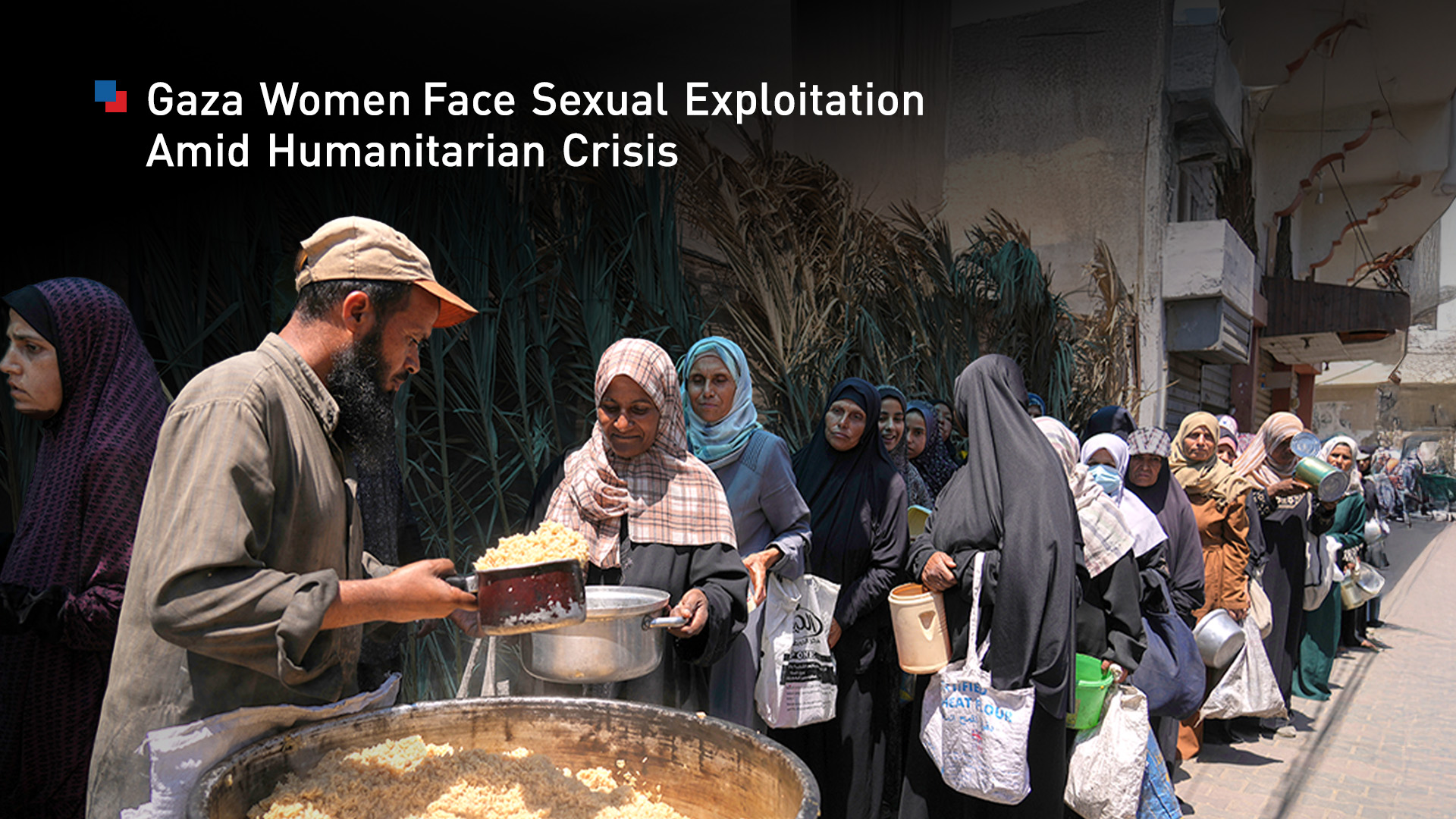Gaza Women Coerced into Sexual Exploitation Amid Food Crisis
For many women in Gaza, dignity and access to aid remain as urgent as the promise of peace itself.

ERBIL (Kurdistan24) — Women in Gaza have told The Associated Press that some local men, including individuals associated with aid organizations, have exploited the humanitarian crisis by offering food, money, or jobs in exchange for sexual interactions.
The revelations come as Gaza struggles under nearly two years of war, with widespread displacement and mounting humanitarian needs. The AP report detailed accounts from six women, all speaking anonymously for fear of social stigma, retaliation, or exposure, who described being coerced or solicited for sexual favors while trying to access aid.
One 38-year-old mother of six told AP that a man promising her a six-month contract with an aid agency instead drove her to an empty apartment, forced her to remove her headscarf, and pressured her into a sexual encounter.
She said he gave her modest money and food afterward, but the promised employment did not materialize for weeks.
“I had to play along because I was scared, I wanted out of this place,” she told AP.
Other women recounted similar experiences, including men who used culturally coded language such as proposals of marriage or invitations to accompany them somewhere, while some asked explicitly for sexual favors.
Psychologists and human rights workers cited in the AP report said cases of exploitation and sexual abuse have risen sharply as the humanitarian crisis worsens.
“It’s a horrible reality that humanitarian crises make people vulnerable in many ways — increased sexual violence is often a consequence,” said Heather Barr, associate director for the women’s rights division at Human Rights Watch.
Aid Organizations Respond
According to the AP report, several aid organizations, including the Women’s Affairs Center and the Protection from Sexual Exploitation and Abuse (PSEA) network, confirmed awareness of such incidents.
UNRWA, the United Nations agency responsible for Palestinian refugees, said it maintains a zero-tolerance policy toward sexual exploitation and takes every report seriously, although it declined to comment on individual cases.
The PSEA network told AP that survivors can report incidents anonymously and are never required to provide proof. Still, limited connectivity, displacement, and fear of social stigma make reporting and documenting exploitation difficult in Gaza.
The exploitation coincides with a deepening humanitarian crisis in Gaza, where more than 90% of the population has been displaced and food insecurity has grown dramatically.
Gaza’s Health Ministry, run by Hamas, reported more than 66,000 fatalities since the conflict began, with women and children comprising around half. No neutral professional institution confirmed these data, announced by Hamas.
A Growing and Underreported Problem
Psychologists and women’s groups cited in AP reports said cases of sexual exploitation have increased compared with pre-war years, when such incidents were reported only once or twice a year.
In the current crisis, women are navigating impossible choices while attempting to secure basic necessities.
One 29-year-old mother told AP that a man linked to aid repeatedly called her last fall, insisting she marry him in exchange for food for her children. She blocked his number, but the calls persisted from other phones.
“I felt completely humiliated,” she said. “If I didn’t do it, who would [help my children]?”
According to AP, the accounts represent only a fraction of incidents, with experts warning that sexual exploitation in conflict zones is vastly underreported.
Aid workers and psychologists said that in Gaza’s conservative society, reporting sexual abuse carries immense social risk.
Despite the trauma, women described striving to maintain dignity amid ongoing violence and displacement. They continue to seek aid for their families while navigating a complex environment in which humanitarian assistance, already scarce, is entangled with exploitation.
As the war in Gaza drags on and humanitarian needs deepen, questions remain about whether international diplomatic efforts can offer real protection for vulnerable women.
Activists wonder if President Donald Trump’s peace plan for Gaza, which aims to broker a ceasefire and address the broader conflict, could provide not only a halt to violence but also safeguards against the exploitation and abuse highlighted in these accounts.
For many women in Gaza, dignity and access to aid remain as urgent as the promise of peace itself.